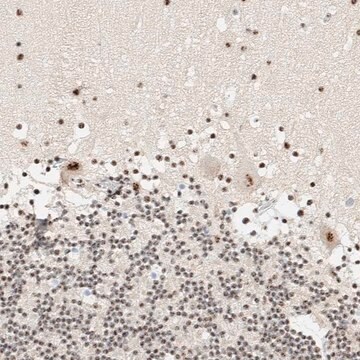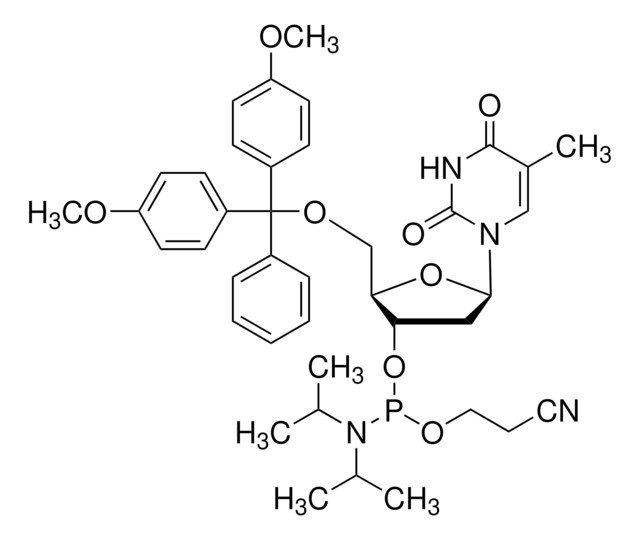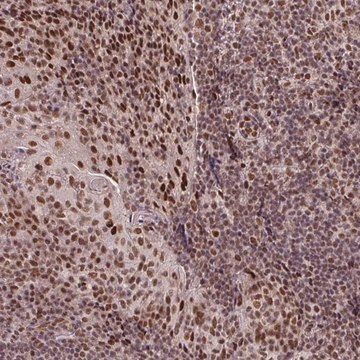S4045
Monoclonal Anti-Splicing Factor SC-35 antibody produced in mouse
clone SC-35, ascites fluid
Sinónimos:
Anti-SC-35, Anti-SC35
About This Item
Productos recomendados
biological source
mouse
Quality Level
conjugate
unconjugated
antibody form
ascites fluid
antibody product type
primary antibodies
clone
SC-35, monoclonal
mol wt
antigen 35 kDa (a doublet)
contains
15 mM sodium azide
species reactivity
frog, Drosophila, newt, rat, human
technique(s)
electron microscopy: suitable
immunocytochemistry: suitable
immunoprecipitation (IP): suitable
indirect ELISA: suitable
indirect immunofluorescence: 1:2,000 using cultured human fibroblasts
isotype
IgG1
shipped in
dry ice
storage temp.
−20°C
target post-translational modification
unmodified
Gene Information
human ... SFRS2(6427)
rat ... Sfrs2(494445)
General description
The essential non-snRNP splicing factor SC-35 displays a speckled distribution in the nucleus that co-localizes with snRNPs, but unlike snRNPs, SC-35 does not give diffuse nuclear labelling. In the nucleus, snRNPs are concentrated in coiled bodies and in the speckled regions, whereas SC-35 is found in speckles but not in coiled bodies.
Specificity
Immunogen
Application
- fluorescence image analysis
- immunohistochemistry
- two or three color immunofluorescence staining
- enzyme-linked immunosorbent assay (ELISA)
- immunohistology
- immunoelectronmicroscopy
- immunoaffinity purification
- immunoprecipitation
Indirect immunofluorescence: a dilution of at least 1:2,000 was determined by staining cultured human fibroblasts.
Disclaimer
¿No encuentra el producto adecuado?
Pruebe nuestro Herramienta de selección de productos.
Storage Class
10 - Combustible liquids
wgk_germany
nwg
flash_point_f
Not applicable
flash_point_c
Not applicable
Certificados de análisis (COA)
Busque Certificados de análisis (COA) introduciendo el número de lote del producto. Los números de lote se encuentran en la etiqueta del producto después de las palabras «Lot» o «Batch»
¿Ya tiene este producto?
Encuentre la documentación para los productos que ha comprado recientemente en la Biblioteca de documentos.
Nuestro equipo de científicos tiene experiencia en todas las áreas de investigación: Ciencias de la vida, Ciencia de los materiales, Síntesis química, Cromatografía, Analítica y muchas otras.
Póngase en contacto con el Servicio técnico








